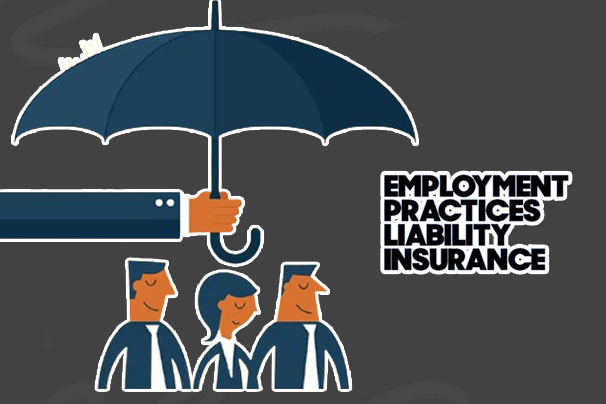
In today’s disputable business environment, employment practices liability insurance, also known as EPLI, has become an important aspect of risk management for different organizations. Moreover, since employment laws are becoming more complex and workplaces are constantly evolving, businesses are exposed to a wide range of legal challenges associated with their employment practices.

Additionally, EPLI acts as a safety net to companies and businesses for protection against financial issues or consequences of employee-related lawsuits and claims. In this article, we will be exploring more about employment practices liability insurance, how it works, what it covers, its exclusions, and how to get a policy.
What is Employment Practices Liability Insurance?
As mentioned earlier, employment practices liability insurance is also known as EPLI and is a form of insurance designed specifically to offer protection to employers from damages and legal costs related to employment-associated claims caused by potential employees, regular employees, or former employees.
What’s more, these claims can be caused by different employment operations, such as harassment, wrongful termination, discrimination, and other workplace-related problems. Apart from this, EPLI is crucial for protecting businesses against possible financial issues due to these claims.
How Does It Work?
Employment practices liability insurance works by offering coverage for the cost to employers defending their employees and businesses against employment-associated lawsuits and claims. So, when you file a claim, the insurance quote will be responsible for covering the cost of legal defense.
In addition to this, if the court judgment or settlement is given against you, your EPLI policy can cover the expenses as well. In other words, this insurance policies operate on a “claims-made” system. Therefore, claims made during the policy period will be covered.
What Does It Cover?
This insurance (EPLI) offers wide coverage as well as different employment-related issues protection. Here are some of the areas they pay attention to:
- Discrimination.
- Unpaid wage disputes.
- Wrongful termination.
- Employee retaliation claims.
- Harassment.
What Does It Not Cover?
Although EPLI provides comprehensive coverage, there are certain exclusions and limitations. Some of them are as follows:
- Contract breach.
- Employment-associated criminal acts.
- Workers’ compensation claims.
- Bodily injury.
- Property damage.
- Hour or wage law violations.
- Fraud.
- Labor disagreement.
- Unemployment insurance.
- Criminal or civil penalties or fines.
- Disciplinary damages.
Who Needs an Employment Practices Liability Insurance Policy?
Any company or business with employees will find employment practices liability insurance advantageous regardless of the industry type and business size. Nevertheless, this form of protection is important for:
- Businesses with vast workforces.
- Small and medium-sized businesses.
- High-risk industry businesses.
- Large corporations.
- Growing or startup businesses.
- Organizations with employees.
- Business with complicated employment practices.
- Nonprofit organizations.
Is EPLI Insurance Worth It?
Yes, considering or getting employment practices liability insurance is worth it. Moreover, it is generally considered essential for many business owners. Although it can be quite expensive, without coverage, your business might experience significant financial difficulties from legal difficulties and fees.
In addition to this, having a policy can safeguard the reputation of your company, making sure that the claims are managed immediately and professionally. In other words, this insurance offers financial stability and peace of mind to businesses.
How Much Does Employment Practice Liability Insurance Cost?
There are many factors that are responsible for influencing the cost of this insurance. They include:
- Coverage limits.
- Size of the business.
- Location.
- Claims history.
- Industry type.
- Deductibles.
The insurance company you choose also affects the premium amount. Meanwhile, it is crucial that you gather quotes from different providers to find a policy that meets your needs.
How to Buy Employment Practices Liability Insurance
Buying or getting an employment practices liability insurance policy involves a series of steps, and they are affected by the insurance company. Here is a comprehensive step-by-step guide you can follow to begin:
- Evaluate your business needs.
- Determine the level of coverage you need.
- Work with insurance brokers.
- Gather multiple quotes from insurance companies.
- Choose a policy that meets your needs.
- Review the policy terms and conditions.
- Purchase and make premium payments.
- Update and review your insurance policy regularly.
By reviewing your insurance policy regularly, you can figure out if your employment practices have changed or your business has evolved.
FAQs
What is the difference between EPLI and general liability insurance?
EPLI is a form of insurance that only covers employment-related claims. On the other hand, general liability insurance offers coverage for wider risks like bodily injury and property damage.
Can EPLI cover claims from independent contractors?
EPLI quotes generally provide coverage for employee claims, with independent contractors typically not included. Meanwhile, it is crucial that you review the details of your policy for proper information on coverage.
Is EPLI coverage required by law?
Although having an employment practices liability insurance policy is not mandatorily required, it is advised that businesses have a policy to reduce the associated risks.
How can a business reduce its EPLI premiums?
As a business owner, if you would like to reduce the premium amount of an employment practices liability insurance policy, you can start by maintaining a good claims history and offering employee training.